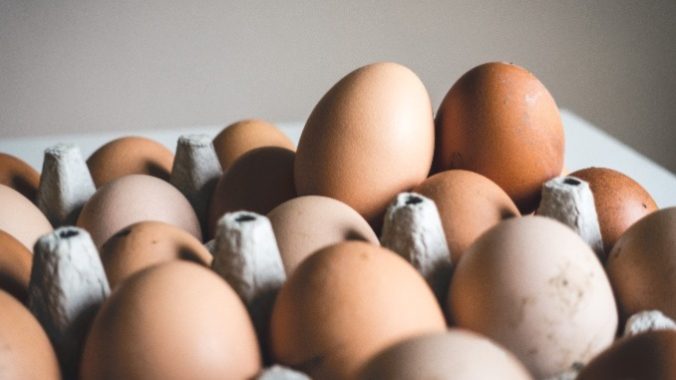
It’s no secret that grocery prices have risen rapidly over the past year. The good news? According to NPR, inflation is finally easing, hopefully providing consumers with at least a modicum of relief. The bad news? The prices of some common goods, like eggs, are still sky-high. At the end of 2022, egg prices were up 120% from the same time in 2021. In some of the most expensive areas of the country, shoppers are paying $7 to $8 for a dozen eggs.
There are a few reasons for this surge in egg prices. Mostly, the high costs are attributed to a brutal outbreak of avian flu, which began in February. However, unlike previous outbreaks that were largely quashed by summer, in 2022, the disease rampaged throughout the course of the year. Nearly 60 million birds have been affected by the disease, which has required mass culling, or slaughter, in an effort to control the virus. A drastic reduction in the number of egg-producing chickens in the country has resulted in skyrocketing egg prices; supply is struggling to keep up with demand.
However, according to some, avian flu only partially accounts for the increase in egg prices. On January 15, Vermont Senator Bernie Sanders tweeted about the “corporate greed” he believes plays into the egg price hike. Because even as the egg industry as a whole has faced a devastating outbreak, Cal-Maine Foods, the largest egg producer and distributor in the country, which is known for brands like Land O’ Lakes, Farmhouse Eggs and Egg-Land’s Best, among others, has reported no cases of avian flu at any of its facilities, according to CNN Business. This seems to indicate that the rise in egg prices from these brands is not, in fact, directly related to avian flu.
By November, Cal-Maine’s profits had increased 65% from a year prior. And this isn’t the first time Cal-Maine appears to have made a profit from an epidemic: The State of Texas claims that the company price-gouged consumers during the Covid-19 pandemic, according to the Texas A&M AgriLife Extension blog. At the time of writing, Benzinga estimates Cal-Maine CEO Adolphus B. Baker’s net worth at around $241.66 million.
Twitter users are lamenting the increase in price for what many consider to be an essential good while companies peddling eggs have been such a dramatic rise in profits. Per @ninaturner, “Eggs should not cost more than the federal minimum wage.” How are families expected to put food on their tables when an hour of work can’t even purchase a dozen eggs?
On a practical note, we as consumers—at least, those of us who can still technically afford a dozen eggs—can find ways to reduce our egg consumption, to bake our favorite cakes with chia seeds or bananas, to search out new egg-less recipes and to replace our breakfast eggs with other sources of protein.
But ultimately, I think we all recognize that things have to change. In his tweet, Senator Sanders advocated for a windfall profits tax, a tax aimed to cap profits when a company suddenly makes significantly more money than expected. In theory, this kind of tax would prevent companies like Cal-Maine from profiting off the kind of misfortune that has resulted from both the avian flu and Covid-19 outbreaks.
As prices increase and wages stagnate, as CEOs build insane levels of wealth on the backs of their workers, many U.S. Americans are reaching their breaking points. When full-time work can’t keep people out of abject poverty and requires them to rely on scraps from a broken emergency food system, it’s a sign that something has gone horribly wrong on a policy level. Most of us don’t want luxury—at this point, we are fighting for the barest of necessities. Eggs, at the very least, should be within the financial reach of every individual in the richest country in the world. Something has spoiled in our country. And the stench isn’t coming from the eggs.
Samantha Maxwell is a food writer and editor based in Boston. Follow her on Twitter at @samseating.